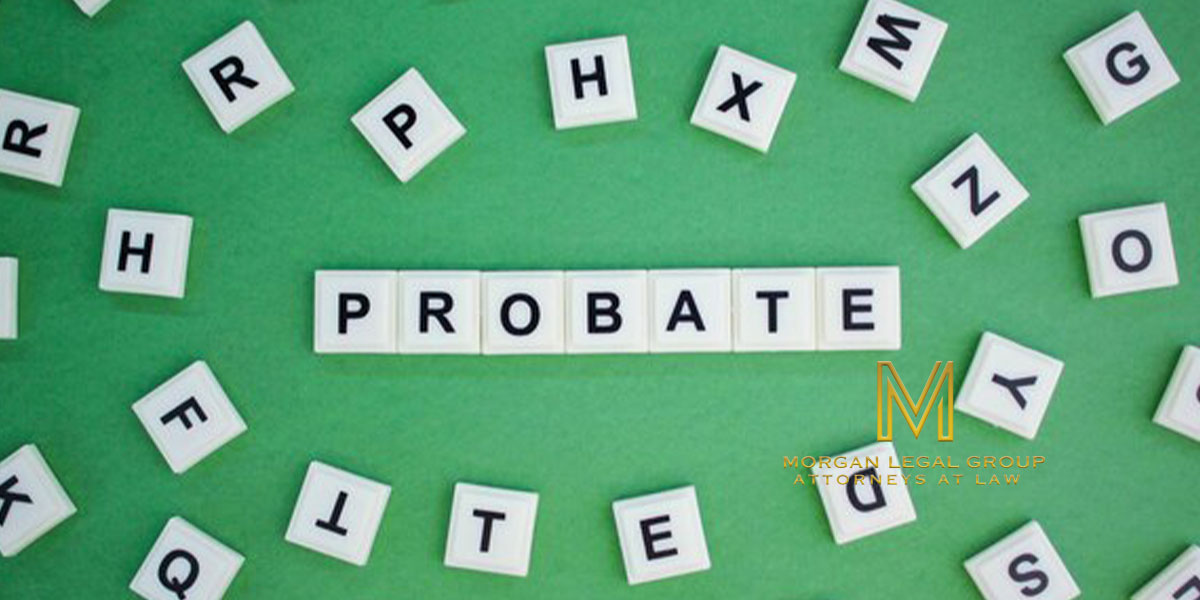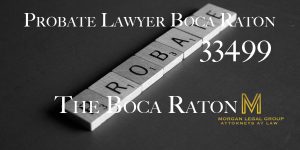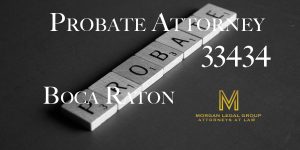Is Probate Required in Miami?
Probate is a legal process that involves the validation of a will and the distribution of a deceased person’s assets and properties to their heirs and beneficiaries. It’s a common question for individuals and families in Miami, Florida: Is probate required?
Understanding Probate in Miami
Probate laws can vary from state to state, and Florida has its own set of rules and regulations governing the probate process. In Miami, as in the rest of Florida, whether or not probate is required depends on several factors, including the nature of the assets, the presence of a valid will, and how those assets are titled.
Assets Subject to Probate
Some assets are typically subject to probate in Miami:
- Assets solely owned by the deceased person without designated beneficiaries or joint owners.
- Assets for which the deceased person’s will is the primary governing document.
- Assets that do not have a designated transfer-on-death beneficiary.
Assets subject to probate go through the court-supervised probate process, which can be time-consuming and costly. The court ensures that the deceased person’s debts are paid and that their remaining assets are distributed according to their will or, in the absence of a will, according to Florida’s intestate succession laws.
Assets Not Subject to Probate
However, not all assets in Miami need to go through probate. Some assets can be transferred directly to beneficiaries or joint owners outside of the probate process. These may include:
- Assets held in a trust.
- Assets with designated beneficiaries, such as life insurance policies and retirement accounts.
- Assets owned jointly with rights of survivorship.
These non-probate assets pass directly to the designated beneficiaries or co-owners upon the death of the asset holder, avoiding the probate process.
Consult with a Miami Probate Attorney
Whether or not probate is required in Miami depends on the unique circumstances of the deceased person’s estate. To determine the appropriate steps to take after the death of a loved one or to plan for your own estate, it’s crucial to consult with an experienced Miami probate attorney.
At Morgan Legal Group in Miami, our team of knowledgeable probate attorneys can provide you with guidance and legal assistance tailored to your specific situation. We can help you understand whether probate is necessary and guide you through the process if it is.
Contact us today to discuss your probate-related questions and concerns. We’re here to assist you with all of your estate planning and probate needs in Miami, Florida.
The Probate Process in Miami, Florida
The probate process in Miami, Florida, is a legal procedure that takes place after an individual passes away. It involves the distribution of the deceased person’s assets, payment of debts, and the resolution of any claims or disputes. Probate can be a complex and lengthy process, and whether or not it’s required depends on several factors.
Factors Affecting Probate Requirements
1. The Presence of a Valid Will: If the deceased person has a valid will, the probate court will typically use it as a guide for distributing assets. However, even with a will, some assets may still need to go through probate if they are not structured to avoid it.
2. Types of Assets: The nature and ownership of assets play a significant role in whether probate is required. Assets that are jointly owned with rights of survivorship held in a trust or have designated beneficiaries typically avoid probate.
3. Debts and Expenses: During probate, the court ensures that the deceased person’s debts are paid, including outstanding bills and taxes. This process can take some time, and the estate must have sufficient assets to cover these expenses.
4. Intestate Succession: If the deceased person did not have a valid will, their assets will be distributed according to Florida’s intestate succession laws. In such cases, probate is necessary to determine the rightful heirs.
Assets Subject to Probate
Assets that are typically subject to probate in Miami include:
- The deceased person solely owns individual bank accounts and investments.
- Real estate is owned solely by the deceased person.
- Personal property without designated beneficiaries.
For these assets, the probate court oversees the transfer of ownership to the beneficiaries or heirs as specified in the will or according to intestate succession laws.
Assets Not Subject to Probate
There are several types of assets that can bypass the probate process in Miami:
- Assets Held in Trust: Revocable living trusts and irrevocable trusts can be used to transfer assets directly to beneficiaries without probate.
- Assets with Designated Beneficiaries: Life insurance policies, retirement accounts (e.g., 401(k)s, IRAs), and payable-on-death (POD) bank accounts allow you to name beneficiaries who receive the assets directly upon your passing.
- Jointly Owned Property: Assets owned jointly with rights of survivorship, such as joint bank accounts and real estate, pass directly to the surviving co-owner.
Why Avoiding Probate Can Be Beneficial
While probate is a necessary legal process in some cases, many people aim to structure their estates to avoid it whenever possible. There are several reasons for this:
1. Time-Efficiency: Probate can be a lengthy process, often taking several months or even years to complete. Avoiding probate means that assets can be distributed to beneficiaries more quickly.
2. Cost Savings: The probate process involves various fees and court costs. By avoiding probate, you can reduce the expenses associated with settling your estate.
3. Privacy: Probate proceedings are a matter of public record, which means that anyone can access information about your assets and beneficiaries. Avoiding probate can help maintain your family’s privacy.
4. Control: Structuring your estate to avoid probate allows you to have more control over how your assets are distributed and to whom.
Consulting with a Miami Probate Attorney
Whether probate is required in Miami, Florida, for your estate depends on your unique circumstances and how your assets are structured. To make informed decisions about estate planning and probate avoidance, it’s essential to consult with a qualified Miami probate attorney.
At Morgan Legal Group, our experienced attorneys can help you create an estate plan that aligns with your goals and can guide your beneficiaries through the probate process when necessary. Contact us today for personalized legal assistance in Miami, Florida.








